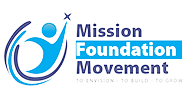Subject
- Home
- Pages
- Subject
Subject
1st Year Subjects
1. Pharmaceutics
Pharmaceutics is a science of preparing and dispensing drugs. Pharmaceutics-I focuses on the study the different types of dosage form, the important machines and equipments used in the preparation of drugs, the basic method involved in the preparation steps and their sterilization process. Furthermore, brief study of tablets, capsules and immunological products were also covered during the 1st year Diploma in Pharmacy.
Whereas, practical are about the techniques involved in preparation of different dosage forms including cosmetic preparations.
2. Pharmaceutical Chemistry
In the first year of Diploma in Pharmacy, the whole syllabus mainly focus in studying inorganic chemical compounds useful for pharmaceutical sciences and chemical compounds having physiological importance. Whereas, practical work is usually based on the quantitative analysis of different chemical samples.
3. Pharmacognosy
Pharmacognosy is an important branch of Pharmacy that includes the scientific study of structural, physical, chemical, biochemical, and biological properties of crude drugs and search for new drugs from plants, animals and mineral sources.
D.Pharm course include the study of more than 80 drugs which were obtained from natural origin.
4. Social Pharmacy
Social Pharmacy deals with basic knowledge on public health, epidemiology, preventive care and other social health related concepts. It also emphasizes the roles of pahrmacists in the public health programs.
The course describe various health and national health programs, preventive healthcare, food and nutritional realted issues, health education and health promotion and general roles and responsibilities of pharmacists in public health.
Through this subject, we can apply knowledge and skills associated with Social Pharmacy.
5. Human Anatomy & Physiology
Anatomy is the scientific study of the structure and relationship between different body parts and Physiology is the scientific study of the function of the body parts and the body as a whole.
Students are teach and guided to the basics of Anatomy and Physiology during their First Year, so that they may know and understand the mechanism and functioning of all the body parts.
Practical classes are conducted in which students are taught the basics of day to day health care instruments and to make them function as an important individual in the health care.
2nd Year Subjects
1. Pharmacology & Toxicology
Pharmacology and Toxicology is the main body that holds an important place in Pharmacy. Students are fed with the scientific knowledge and basics in how drugs work, effect the body and many important topics related to medicine use in general during their Second Year.
Students are guided in Clinical Practice so that they may be of use in aday to day basis and become a responsible Pharmacist.
2. Pharmacotherapeutics
The subject is designed to impart basic knowledge on etiopathogenesis of common diseases and their management along with quality use of medicines.
The subject will focus mainly on etiopathogenesis of common diseases and evidance base medicine therapy. Importance of individualized therapeutic plans based on diagnosis. Basic methods for assessing the clinical outcomes of drug therapy.
3. Biochemistry and Clinical Pathology
The subject is designed to impart basic knowledge on the study of structure and functions of bio-molecules and the chemical process associated with living cells in normal and abnormal state. It also emphasizes on the clinical pathology of blood and urine.
The subject will focus on structure and functions of bio-molecules, catalytic activity, diagnostic and therapeutic importance of enzymes. Metabolic pathyways of bio-molecules in health and illness (metabolic disorders). Biochemical principles of organ function tests and their clinical significance. Qualitative and quantitative determination of bio-molecules metabolies in the biological sample. Clinical pathology of blood and urine.l
4. Pharmacy Law and Ethics
The word jurisprudence, is derived from the Latin term juris prudentia, which means "the study, knowledge, or science of law".
Pharmacists, pharmacies, drugs and pharmaceuticals are regulated in every country. Therefore, pharmacists specifically practicing pharmacists must be aware of the regulations that apply to their professional activities.
Pharmaceutical jurisprudence course has been an integral part of pharmacy education.
5. Community Pharmacy and Management
This subject is designed to impart basic knowledge and skills to provide various pharmaceutical care services to patients and general practitioners in the community setup.
The subject will focus on establishing and running a coomunity pharmacy and its legal requirement, professional ascepts of handling and filling prescriptions, patients counselling on diseases, prescription and/or non-prescription medicines, perform basic health screening on patients and interpret the reports in the community pahrmacy settings.
6. Hospital & Clinical Pharmacy
Hospital and clinical pharmacy is broadly divided into 2 parts, namely Hospital Pharmacy and Clinical pharmacy. Hospital pharmacy part demonstrate the roles of pharmacist in managing drug information services, drug distribution system, drug list etc. in the hospital.
Clinical pharmacy demonstrates the roles of pharmacist in providing patient care and patient counseling, and also deals with the basic knowledge about drug interactions, adverse drug reactions, bioavailability of drugs etc.
Practical class includes preparation, sterilization and testing of transfusion fluids. And Sterilization of surgical instruments, glassware and hospital supplies.


